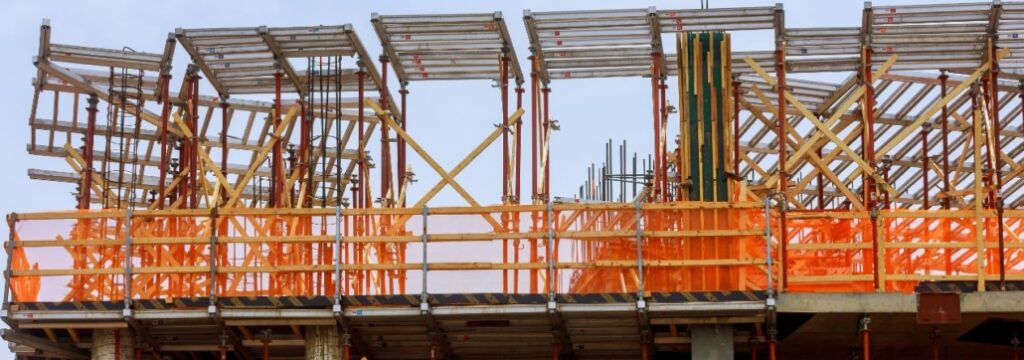As linhas de produção da Composite-Tech são a personificação da inovação e da confiabilidade na área de produtos de Polímero Reforçado com Fibra (PRFV). Com uma sólida trajetória de vasta experiência de vários anos e uma equipe de engenheiros profissionais qualificados nos setores civil e militar, a Composite-Tech (fabricante de vergalhões de PRFV) conquistou um nicho no setor, desenvolvendo e fabricando produtos de última geração. equipamentos para produção de vergalhões de PRFV, malha GFRP, elementos dobrados GFRP e outros produtos compostos.
Essa expertise se reflete na qualidade superior dos compósitos de FRP, que são significativamente avançados em comparação aos produzidos pelos equipamentos dos concorrentes, especialmente quando comparados às barras de aço tradicionais (Vergalhões de FRP vs vergalhões de aço). A utilização de tecnologias ópticas de ponta e controle computadorizado garante que cada produto atenda aos mais altos padrões de precisão e qualidade. Além disso, inúmeras patentes sustentam a posição da Composite-Tech na vanguarda do setor, colocando-a vários passos à frente de qualquer concorrência.
Vamos nos aprofundar nas características notáveis das barras de reforço e malhas de FRP produzidas nos equipamentos da Composite-Tech.
Vergalhões de fibra de vidro vs. aço
Aço vs PRFV | ||
|---|---|---|
| Especificação | Vergalhões de FRP | Barra de aço |
| Material | Fibra de vidro, resina de poliéster | Barra de aço |
| Estiramento resistente, tempo | 1200 MPa | 360 MPa |
| Módulo de elasticidade | 55000 MPa | 200000 MPa |
| Alongamento relativo | 2.2% | 25% |
| Densidade | 1,9 t/m3 | 7 t/m3 |
| Resistência à corrosão | Material inoxidável do primeiro grupo de resistência química | Corroído com produtos de ferrugem |
| Condutividade térmica | Não condutivo | Condutor de calor |
| Condutividade elétrica | Não condutivo | Condutivo elétrico |
| Diâmetros produzidos | 3-40 | 6-80 |
| Comprimento | Qualquer comprimento | 6-12 m |
| Durabilidade | Não menos de 100 anos | Por código de construção |
Materiais de FRP, incluindo vergalhões de fibra de vidro, apresentam propriedades excepcionais que os tornam mais vantajosos do que os materiais convencionais. Por exemplo, o vergalhão de PRFV, composto de fibra de vidro e resina de poliéster, apresenta uma resistência ao estiramento de 1200 MPa, superando em muito os 360 MPa do vergalhão de aço padrão. Essa alta resistência à tração é complementada por um notável módulo de elasticidade de 55000 MPa, que, embora inferior aos 200000 MPa do aço, ainda é impressionante, dada a densidade significativamente menor do PRFV, de 1,9 t/m³, em comparação com as 7 t/m³ do aço.
A durabilidade do PRFV também é digna de nota, com uma vida útil não inferior a 100 anos, garantindo que as estruturas construídas com materiais compósitos de PRFV resistam ao teste do tempo. A não condutividade do material é uma característica vital em ambientes onde o isolamento elétrico é fundamental. Além disso, as barras de PRFV são resistentes à corrosão, proporcionando uma solução duradoura em ambientes quimicamente agressivos, onde o aço sucumbe à corrosão.

Os slides também revelam a carga de ruptura superior das barras de PRFV em vários diâmetros, demonstrando sua robustez e confiabilidade. Em termos de peso, o PRFV demonstra sua superioridade com sua leveza, o que reduz significativamente os custos de transporte e manuseio. Por exemplo, uma barra de PRFV de 6 mm de diâmetro pesa apenas 0,02 kg, enquanto a barra de aço do mesmo diâmetro pesa 0,22 kg. Essa diferença é ainda mais ilustrada pelo número de metros por tonelada, com o PRFV oferecendo impressionantes 50.000 metros por tonelada para uma barra de 6 mm de diâmetro, em comparação com os 4.505 metros por tonelada do aço.

Para concluir, Linhas de produção da Composite-Tech são uma prova do avanço em tecnologia de materiais compósitos. Os materiais compósitos de FRP produzidos em seus equipamentos, desde vergalhões de FRP até Malha de FRP, apresentam características que superam em muito as dos concorrentes, oferecendo um argumento convincente para sua ampla adoção em substituição ao aço tradicional em diversas aplicações. O maquinário inovador e confiável, respaldado por uma riqueza de patentes e uma equipe profissional, garante que a Composite-Tech permaneça líder no setor, expandindo os limites do que é possível com materiais de PRFV.
Saber mais:

